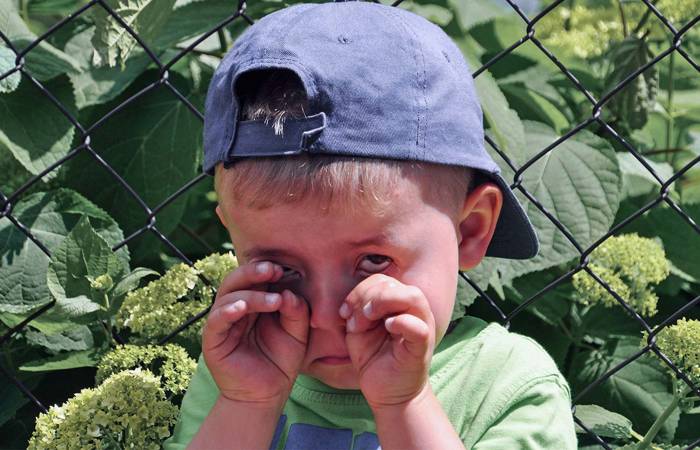Like what you see?
Sign up to receive more free parenting advice.
Thank you for subscribing to our newsletter!
Child Development

Credit: iStock.com/ljubaphoto
Dr Justin Coulson is a three-time bestselling author, a TEDx speaker, and one of Australia's most popular relationships and parenting experts. In this article he explores common mistakes we make when attempting to help our children navigate big emotions and suggests three easy strategies we can use to keep our cool when emotions run hot.
Children have massive emotions that sometimes result in explosive moments – tantrums.
It happens to most of us: You’re at a supermarket just picking up a few things for dinner and somehow you find yourself there with your child face down on the floor, screaming, their arms and legs hammering into the ground.
Our worst nightmare is other people walking past thinking “what is going on with that child?” or worse – “what is that parent doing?!”
A situation like this is highly emotional for us as parents as well. We often discover that we are really uncomfortable with our child’s discomfort.
The more emotional we get, the more stressed we get and the more we try to hurry things up.
We become less level and balanced, and we start to escalate as they escalate.
So, we say things that seem right in the moment in an attempt to find a short-cut to a calm state.
The four most common things we say that make things worse are:
- “Calm down”
- “Stop it”
- “Be quiet”
- “Don’t worry, you’ll be fine”
These common phrases are a result of us trying to fix our child’s response and hurry through their emotion.
Our attempt to get our child to calm down, stop it and be quiet, acts like fuel to a fire. Never in the history of being told to calm down has anyone ever calmed down!
When we tell them not to worry, that they will be fine, what we are actually doing is dismissing their emotion, we’re saying none of that counts. When our child cries “I don’t want to go to kindy today!” and we reply with “Oh you’ll be fine” our child’s emotions go up as they feel dismissed and misunderstood.
So what can we do to stay calm when things start to fall apart?
Our attempt to get our child to calm down, stop it and be quiet, acts like fuel to a fire.Dr Justin Coulson
Stay up to date with the latest news and articles from First Five Years
Thank you for subscribing to our newsletter!
Three strategies to keep your cool under pressure
When our children have one of those moments where they feel all the big feelings and lose control over their emotions and behaviour, it’s really difficult for us parents to stay calm and model the behaviour we want them to exhibit as well.
After all, emotions are contagious!
Going back to where we started with your child losing it in the middle of the supermarket, attracting unwanted attention from strangers around you. How do you refrain from taking the short-cut and demanding your child calms down, stops and is quiet?
There are three easy ways which I recommend to parents who struggle to keep their cool in situations like this:
1. Imagine they’re someone else’s child
I don’t mean dismiss them and make them someone else’s problem. Sure, it sounds controversial at first, but have you noticed that you treat other people’s kids much better than your own?
When you find yourself in an emotional situation with someone else’s child, you don’t lose your patience, you don’t get mad at them, you don’t smack them, you don’t send them to their room or threaten them.
You do quite the opposite – you get down on their level, you connect with them. You hear them and you work things through until you find a solution.
Children respond really well to that! Try this with your own children and watch what happens.
2. Imagine you’ve got an audience
Whenever there is an audience, we tend to parent much better.
Next time you are under a lot of pressure, imagine I am standing in the corner of your living room, watching!
You will be much more patient and gentle with your children.
3. Have compassion
This one may seem obvious, but we do have to be reminded of it sometimes. Show compassion!
That means soften your eyes and see your child as a struggling little one who doesn’t know how to find their words and regulate their emotions, manage their behaviours or view things from another person’s perspective.
Children who are experiencing big emotions are like a train going through a tunnel.
All too often we are getting out the earth moving equipment and the dynamite in an attempt to reach into the tunnel and extract the train.
Our job is not to fix things. It’s to ride the train with them until it comes out the other side of the tunnel.








